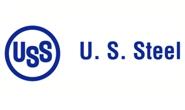Market Segment

January 21, 2016
US Steel Claims Against Their Canadian Facility on Trial
Written by Sandy Williams
Today is Day 4 in a scheduled six day trial to settle the question of US Steel’s claim to $2.2 billion in debt from US Steel Canada.
Day 1 (Jan. 14) began with a recap of the purchase of the former Stelco steel company. Larry Brockway, a vice-president at US Steel that was involved with evaluating the acquisition of Stelco in 2007 said that, at the time, the company was optimistic about the future of the steel industry and its purchase of Stelco.
Brockway was questioned on the financing that US Steel provided to its Canadian asset. US Steel claims the $2.2 billion were loans, but because US Steel Canada was a fully owned subsidiary of the company, opponents claim the cash infusions were investments from the parent company.
Province attorney Peter Ruby noted that US Steel made the decisions to transfer contracts from the Canadian plants to the U.S. that damaged the viability of the Canadian assets.
USW representatives said discussions in the court pointed to a repeated pattern of assigning debt to US Steel Canada while moving business to the U.S. and taking away the ability of USSC to repay those debts.
In an interview by CBC, union leaders Bill Ferguson and Gary Howe commented on the proceedings:
“I think that as the trial goes on, what we’re going to find is that a lot of this was created,” said, Bill Ferguson, head of steelworkers union Local 8782 at Nanticoke. “Everything was created in order to facilitate this bankruptcy.”
“It was supposed to be a net benefit for Canadians, for this takeover of U.S. Steel by Stelco,” added Gary Howe, president of USW Local 1005. “And clearly it’s shown here that there was no net benefit to Canadians, at all.”
On Day 2 of the trial, CEO David Burritt said he discovered when he began at US Steel that the Canadian assets had a “disturbing” problem.
“Canada is bleeding, and we need to conserve cash,” he wrote in an email to a colleague in October 2013.
Burritt testified that Canada brought in 10 percent of company-wide sales and revenue while creating 50-60 percent of US Steel’s losses between 2009 and 2013.
On Day 3, Bradley Hall and Eva Austin Smith, representing the province and the company, respectively, were questioned on whether the US Steel cash infusions were debt or equity.
CBC Hamilton’s Kelly Bennett has been covering the trial in Toronto. In her January 20th coverage, Bennett described the testimony:
“With expertise as a commercial lender, witness Brad Hall opined that there was no way a third-party bank would have looked at the former Stelco’s performance and granted the kind or amount of loan that U.S. Steel sent its Canadian operations in 2007. His expertise was brought into the hearing by the province’s attorney Peter Ruby.
“But witness Yvette Austin Smith, hired by U.S. Steel, said what was more important to determine the Canadian arms’ credit-worthiness was not its past performance as Stelco, but rather its brighter future as a wholly-owned subsidiary.
“’I think it’s more a question of how much they’d be able to borrow and at what terms, not whether it’d have been able to borrow at all,’ she said.”
Austin Smith admitted that some transactions in 2013 appeared to look like equity injections to help US Steel Canada with debt payments.
On Day 4 of the proceedings, Michael McQuade, President of US Steel Canada testified that he was summoned to US Steel headquarters in October 2013 and told to sign an agreement that gave US Steel security over all of the former Stelco assets. At the time, USSC was expecting $12 million from its parent to cover financial obligations.
“I signed it because without that money we would have missed our payroll, we would have missed pension contributions and we would have had trade creditors who would not have been paid,” said McQuade.
McQuade said he didn’t remember anyone telling him that getting the money was contingent on signing the agreement.
“I felt I had an obligation as an officer and director of the company to do what was right for all stakeholders,” he said. “The practical solution for all stakeholders was to sign the security agreement.”
The trial will continue on Friday and into next week.







